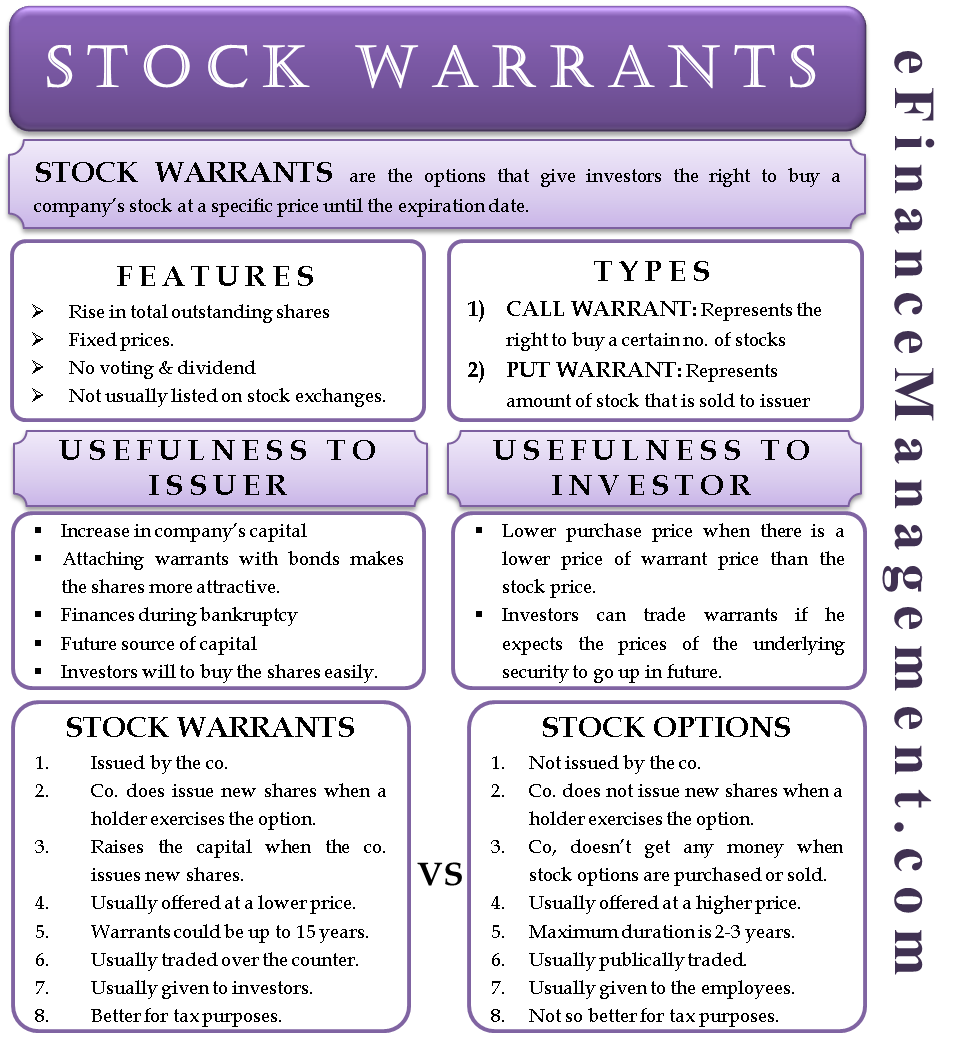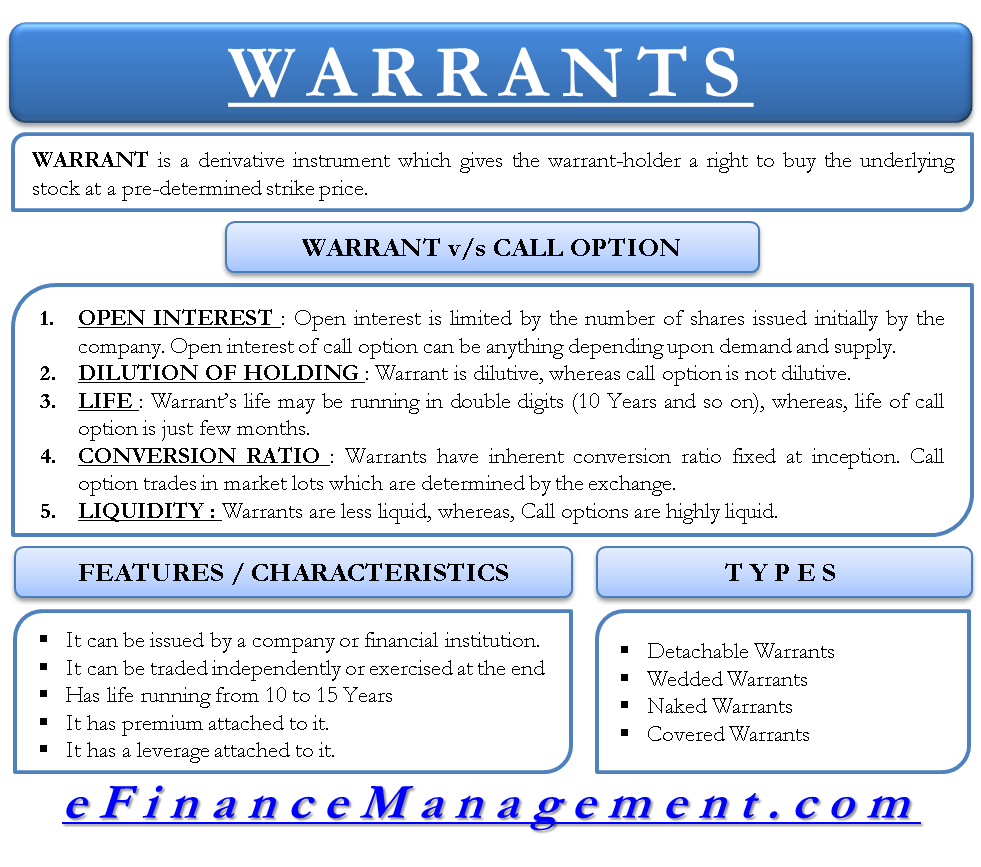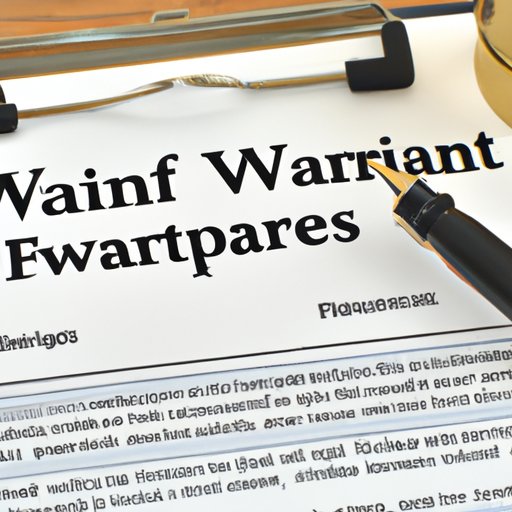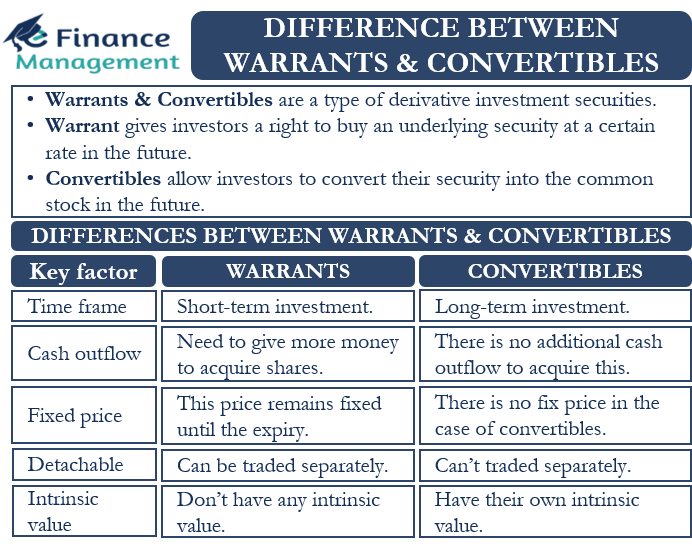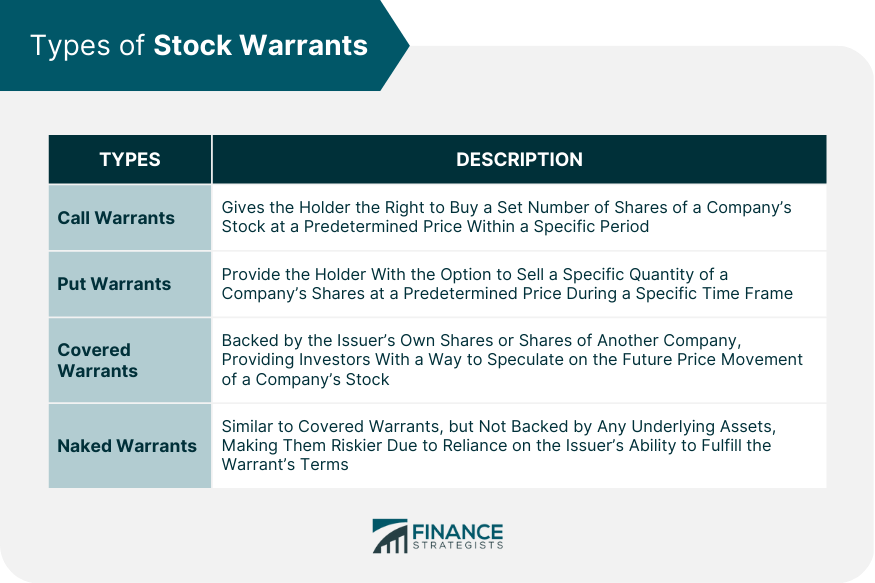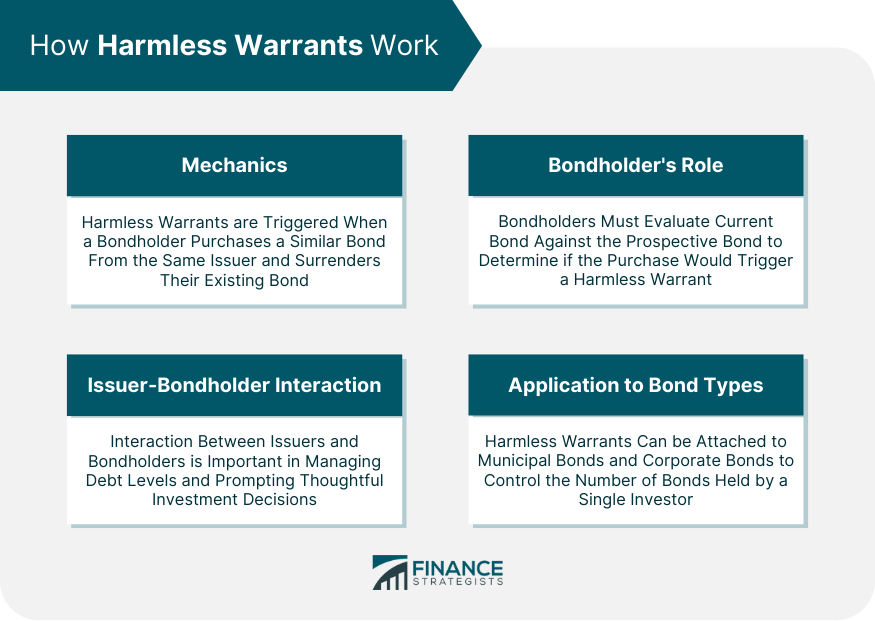What Are Financial Warrants - Warrants grant the holder the right to buy shares at a predetermined price before expiration, offering flexibility and potential. A warrant is a financial security that permits the holder to purchase the issuing company’s underlying shares at a fixed price called the. Warrants are derivative financial instruments that offer investors the opportunity to buy or sell an underlying asset (such as shares,.
Warrants are derivative financial instruments that offer investors the opportunity to buy or sell an underlying asset (such as shares,. A warrant is a financial security that permits the holder to purchase the issuing company’s underlying shares at a fixed price called the. Warrants grant the holder the right to buy shares at a predetermined price before expiration, offering flexibility and potential.
Warrants are derivative financial instruments that offer investors the opportunity to buy or sell an underlying asset (such as shares,. A warrant is a financial security that permits the holder to purchase the issuing company’s underlying shares at a fixed price called the. Warrants grant the holder the right to buy shares at a predetermined price before expiration, offering flexibility and potential.
Warrants Illustration Explained Explanation View Financial Stock
Warrants grant the holder the right to buy shares at a predetermined price before expiration, offering flexibility and potential. Warrants are derivative financial instruments that offer investors the opportunity to buy or sell an underlying asset (such as shares,. A warrant is a financial security that permits the holder to purchase the issuing company’s underlying shares at a fixed price.
Stock Warrants Features, Types, Benefits, Stock Options And More
Warrants grant the holder the right to buy shares at a predetermined price before expiration, offering flexibility and potential. A warrant is a financial security that permits the holder to purchase the issuing company’s underlying shares at a fixed price called the. Warrants are derivative financial instruments that offer investors the opportunity to buy or sell an underlying asset (such.
Warrant Define, Vs Options, Features Types eFinanceManagement
Warrants are derivative financial instruments that offer investors the opportunity to buy or sell an underlying asset (such as shares,. A warrant is a financial security that permits the holder to purchase the issuing company’s underlying shares at a fixed price called the. Warrants grant the holder the right to buy shares at a predetermined price before expiration, offering flexibility.
What is a Financial Warrant? A Guide to Exploring the Risks and Rewards
Warrants are derivative financial instruments that offer investors the opportunity to buy or sell an underlying asset (such as shares,. A warrant is a financial security that permits the holder to purchase the issuing company’s underlying shares at a fixed price called the. Warrants grant the holder the right to buy shares at a predetermined price before expiration, offering flexibility.
Characteristics and Role of warrants EBC Financial Group
A warrant is a financial security that permits the holder to purchase the issuing company’s underlying shares at a fixed price called the. Warrants grant the holder the right to buy shares at a predetermined price before expiration, offering flexibility and potential. Warrants are derivative financial instruments that offer investors the opportunity to buy or sell an underlying asset (such.
Warrants Free of Charge Creative Commons Financial 3 image
Warrants are derivative financial instruments that offer investors the opportunity to buy or sell an underlying asset (such as shares,. A warrant is a financial security that permits the holder to purchase the issuing company’s underlying shares at a fixed price called the. Warrants grant the holder the right to buy shares at a predetermined price before expiration, offering flexibility.
Derivatives Definition, Types Forwards, Futures, Options, Swaps, etc
A warrant is a financial security that permits the holder to purchase the issuing company’s underlying shares at a fixed price called the. Warrants are derivative financial instruments that offer investors the opportunity to buy or sell an underlying asset (such as shares,. Warrants grant the holder the right to buy shares at a predetermined price before expiration, offering flexibility.
Warrants What are they and how do they work? Dandy Law
Warrants grant the holder the right to buy shares at a predetermined price before expiration, offering flexibility and potential. A warrant is a financial security that permits the holder to purchase the issuing company’s underlying shares at a fixed price called the. Warrants are derivative financial instruments that offer investors the opportunity to buy or sell an underlying asset (such.
Stock Warrants Definition, How They Work, Types, Pros & Cons
A warrant is a financial security that permits the holder to purchase the issuing company’s underlying shares at a fixed price called the. Warrants grant the holder the right to buy shares at a predetermined price before expiration, offering flexibility and potential. Warrants are derivative financial instruments that offer investors the opportunity to buy or sell an underlying asset (such.
Harmless Warrants Definition, How It Works, and Effects
A warrant is a financial security that permits the holder to purchase the issuing company’s underlying shares at a fixed price called the. Warrants grant the holder the right to buy shares at a predetermined price before expiration, offering flexibility and potential. Warrants are derivative financial instruments that offer investors the opportunity to buy or sell an underlying asset (such.
A Warrant Is A Financial Security That Permits The Holder To Purchase The Issuing Company’s Underlying Shares At A Fixed Price Called The.
Warrants grant the holder the right to buy shares at a predetermined price before expiration, offering flexibility and potential. Warrants are derivative financial instruments that offer investors the opportunity to buy or sell an underlying asset (such as shares,.

